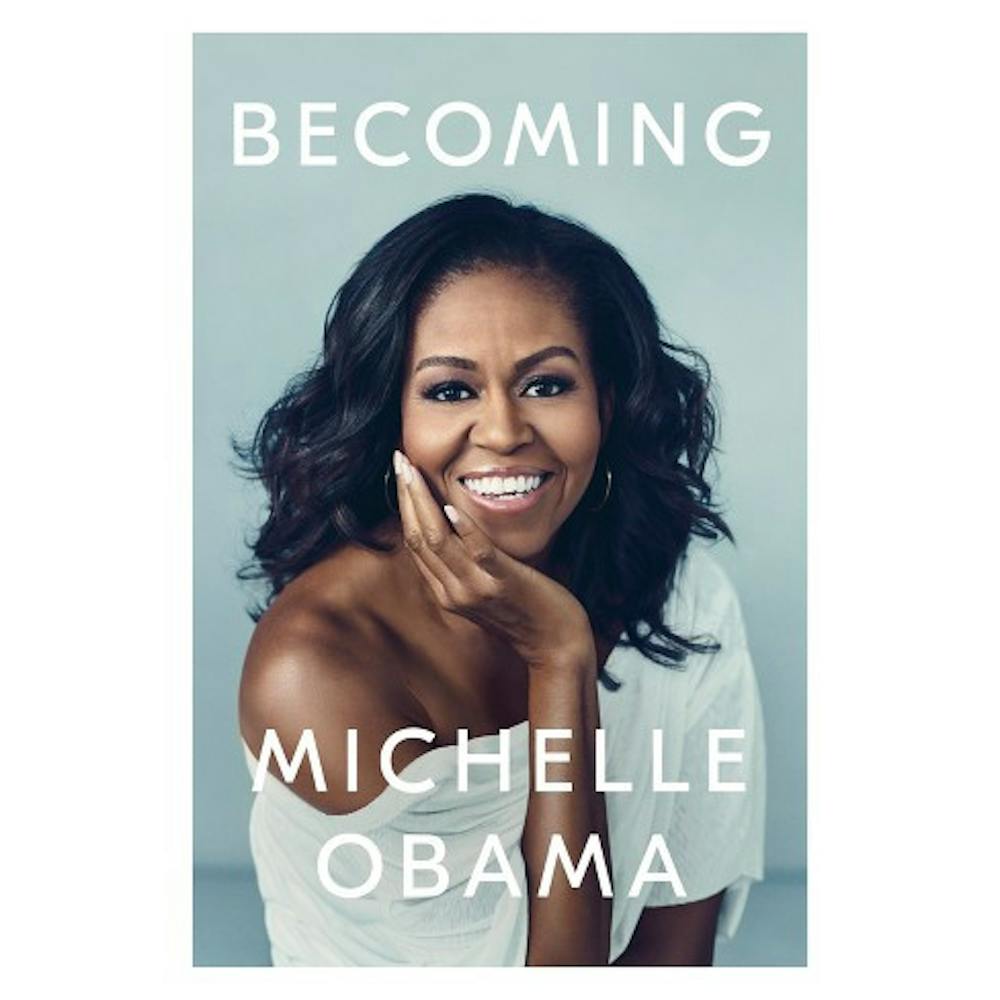“Becoming” is everything you’d expect from the former First Lady of the United States, Michelle Obama. It is a thoughtful, conscientious and well-crafted memoir that studies the first years of her life in Chicago, her arrival to undergrad at Princeton University in New Jersey, the ways she navigated her early career as a lawyer and her marriage to Barack Obama. For me, after so many news outlets reported on and promoted the book, there were very few surprises left to discover.
The “previews” I encountered gave away most of the “secrets” I would have not otherwise anticipated, for example [spoiler alert!] the fact that the couple conceived their children through in vitro fertilization.
On the other hand, it was no real surprise to me that that Mrs. Obama was deeply conflicted when Donald Trump was elected President of the United States. If there was any “surprise,” I suppose it was the consistent and familiar question Mrs. Obama posed to herself over years and decades of her life, “Am I good enough?” Speaking personally, it seems to be a question many, if not all, high achievers ask ourselves over and over again. Two Ivy League degrees, in her case, did not silence that query.
All in all, readers get an even more intimate look at Mrs. Obama’s personal life and upbringing. For someone who has been so open with the public over the past 15 years, there was little to begin with that was kept under wraps. I didn’t know that she studied piano as a child, that her father lived with multiple sclerosis or that her guidance counselor discouraged her application to Princeton. Much of the rest, however, was already transparent and on the table.
For me, one of the book’s strengths is Mrs. Obama’s ability to look back and acknowledge that specific policies and advocacies, or lack thereof, shaped the environment in which she was raised. That is, the work suggests that the South Side of Chicago, for years, if not decades, known for gun violence, is no more inherently dangerous or virtuous than any other locale in the United States.
However, the ways communities are maintained and/or neglected impact the ways they thrive or deteriorate. And the same is true of its residents, marginalized populations therein and elsewhere. I think it’s easy, in our youth, to equate a place or a “type” of people with a set of behaviors or tendencies when offered no evidence to the contrary or not being provided with a context that explains the catalysts for the decay of a community. Having now sat at many a table where policies are made, Mrs. Obama intimately conveys how the power of legislation can be very far from the hands of the people it most impacts.
I’d recommend this work to people who experience regular moments of self-doubt concerning their competency, irrespective of their high and multiple achievements, as it demonstrates that there is room for insecurity and forward movement simultaneously.
I’d also recommend it to anyone who is interested in entering the world of public service, as it engages conversations about the legacies of policymaking, including commentary on how discrimination can affect families for generations.
For other works like this one, see memoirs written by politicians, including Barack Obama’s “Dreams of My Father” and “The Audacity of Hope,” or “What Happened” by Hillary Rodham Clinton.
FYI: While the libraries own a print copy of “Becoming,” there are two holds on it.
For the audiobook found at go/overdrive/, there’s a six-month wait for its availability.
Have you spoken to a librarian about using interlibrary loan? See go/ill/.
Literatures & Cultures Librarian Katrina Spencer is liaison to the Anderson Freeman Center, the Arabic Department, the Comparative Literature Program, the Gender, Sexuality & Feminist Studies (GSFS) Program, the Language Schools, the Linguistics Program and the Department of Luso-Hispanic Studies.
The Librarian Is In

Comments



